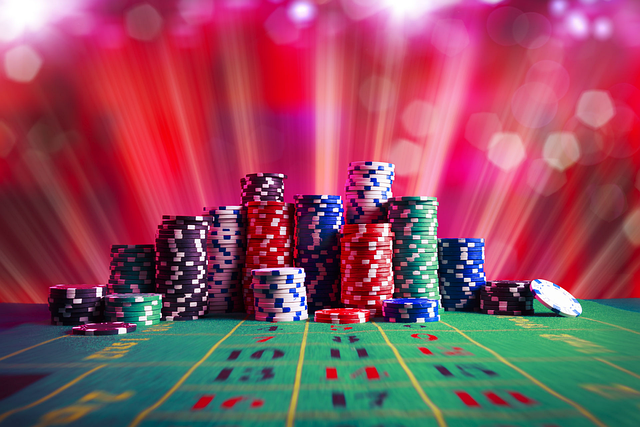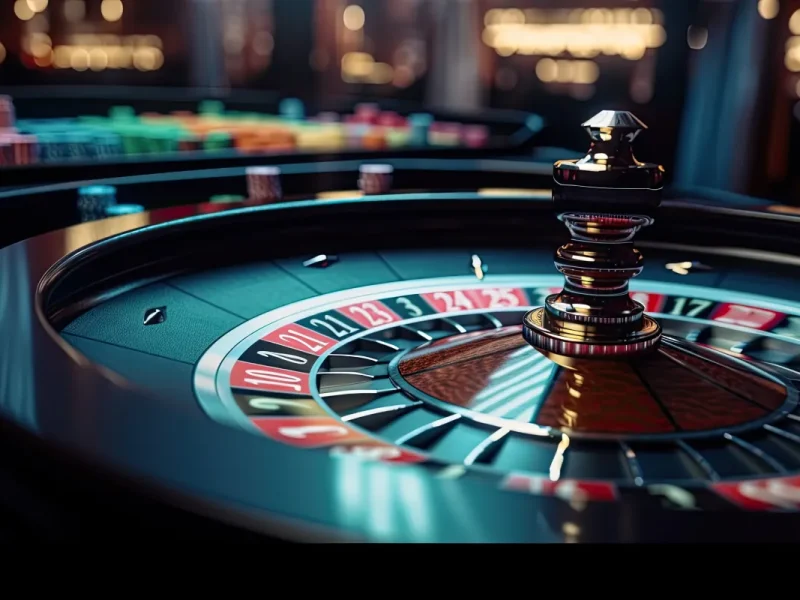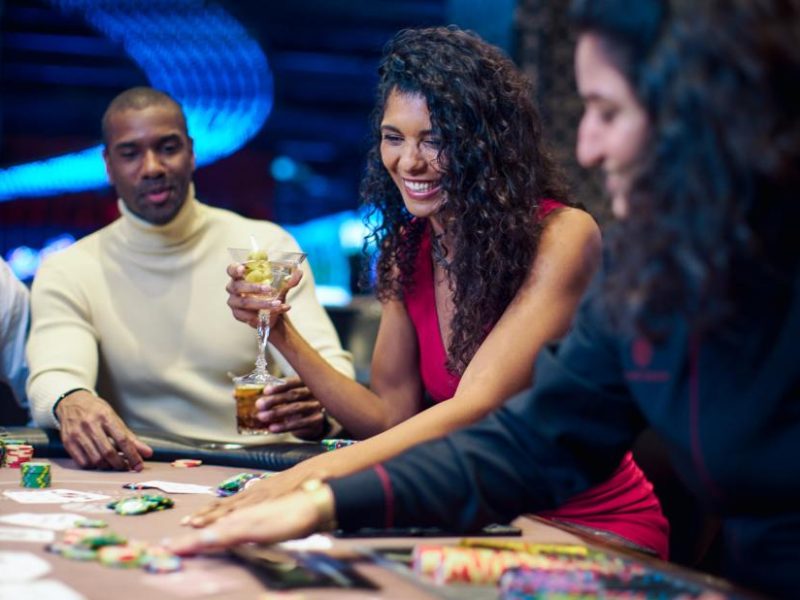Casino gambling is an emotional rollercoaster – each spin, each card dealt, and each roll of the dice can trigger intense feelings of joy, suspense, and frustration. While winning often provokes visible excitement, losing typically produces a very different emotional response. Curiously, despite significant losses, players rarely openly express pain or sadness. This emotional restraint is especially noticeable online, on platforms like https://stake-casino-greece.gr/, where physical isolation might further influence how emotions are displayed.
So, why do casino players rarely show their true feelings after losses? What psychological mechanisms prevent gamblers from openly expressing frustration or grief after significant defeats? This article dives deep into the subtle emotional world of gamblers, unraveling the hidden psychological and social forces behind this curious behavior.
Understanding the Emotional Dynamics of Gambling Losses
Emotional Investment and Gambling
The fundamental nature of gambling inherently involves emotional investment. Every bet placed contains more than just monetary stakes; it also carries emotional hopes and anticipations. Players at casinos mentally visualize positive outcomes and anticipate the pleasure of winning, making the eventual losses potentially more painful.
The Paradox of Emotional Silence
When significant losses occur, one might expect visible distress or disappointment. However, the most common reaction is often surprisingly muted. Players frequently remain calm, silent, or even indifferent externally, showing little of their inner turmoil. This paradox highlights a deep psychological phenomenon at play within gamblers, warranting further exploration.
Psychological Reasons Behind Emotional Restraint
Cognitive Dissonance and Losses
One primary reason for suppressed emotional reactions involves cognitive dissonance – a psychological state of discomfort that arises from conflicting beliefs and behaviors. Players often enter games believing they can win; when they lose, a conflict emerges between expectations and reality. To resolve this conflict quickly, gamblers subconsciously minimize the perceived significance of their losses, maintaining internal emotional stability.
Emotional Self-Regulation
Emotional self-regulation refers to an individual’s ability to manage their emotional reactions. Successful gamblers, or those aspiring to success, frequently practice emotional restraint as part of their gambling strategy. Platforms allow players to practice emotional discipline without social scrutiny, reinforcing a habit of controlled responses.
The Social Dimension of Emotional Suppression
Maintaining Social Image and Status
In traditional brick-and-mortar casinos, emotional restraint after losses is often about maintaining social prestige and dignity. Visible frustration or sadness could be perceived as weakness, signaling vulnerability to others. Online environments, despite their anonymity, preserve this dynamic; players still subconsciously strive to maintain self-respect and composure, even without physical audiences.
Online Social Norms and Anonymity
Interestingly, the digital environment enhances emotional suppression differently. At online casinos anonymity might encourage emotional openness theoretically. However, studies reveal players maintain emotional control online, possibly because emotional expression feels less necessary or because it does not receive immediate social validation or consolation.
Emotional Detachment and Psychological Defense Mechanisms
Psychological Distancing from Losses
Gambling regularly involves both gains and losses. Frequent exposure to losses can cause players to psychologically distance themselves from negative outcomes, viewing them impersonally as part of a broader statistical reality. By reframing losses as inevitable events rather than personal failures, players reduce emotional impact significantly.
Rationalization and Self-Justification
When losses occur, gamblers often rationalize outcomes using self-justification. For example, players might attribute losses to bad luck, random chance, or external circumstances beyond their control. This psychological mechanism helps preserve self-esteem and minimize emotional discomfort associated with losing significant sums.
Cultural Factors Influencing Emotional Reactions
Cultural Attitudes Toward Gambling
Different cultures have distinct attitudes toward gambling and emotional expression. In societies valuing restraint, such as some Asian cultures, openly displaying emotions after losses is considered socially inappropriate. These cultural norms carry over to online casinos influencing player behavior globally.
Stigma Surrounding Gambling Losses
In many cultures, gambling losses carry stigma, prompting gamblers to conceal their emotions. Players avoid expressing negative emotions openly to evade judgment or perceived shame. Online gambling provides anonymity, yet the stigma still subconsciously impacts emotional expression, influencing players’ behaviors even in private.
Biological and Neurological Perspectives
Dopamine and Emotional Response
Gambling activates dopamine pathways, the brain’s pleasure circuits. While dopamine surges during wins, losses suppress these levels, potentially leading to numbness or muted reactions. Players become neurologically conditioned to anticipate emotional fluctuations, subconsciously adapting their reactions to maintain emotional stability.
Fight-or-Flight vs. Freeze Response
When confronted with loss, human instincts trigger fight-or-flight or freeze responses. While gambling losses might initially provoke emotional distress, gamblers commonly default to freeze responses, appearing emotionless externally. Neurological studies suggest the freeze response functions as a coping mechanism, allowing gamblers to manage immediate psychological stress effectively.
Habitual Conditioning and Emotional Control
Learned Emotional Behavior
Gamblers learn emotional control through repetition. Regular exposure to winning and losing patterns conditions emotional responses, leading to habitual emotional restraint. Online gamblers at casinos develop habits of minimal reaction after losses, reinforcing emotional discipline and control.
Professional Gambling Strategies
Professional or experienced gamblers deliberately cultivate emotional control to enhance decision-making. Emotional outbursts after losses negatively affect strategic thinking. Professionals thus condition themselves to maintain emotional neutrality, influencing broader gambling culture and expectations about emotional responses.
Consequences of Emotional Suppression
Positive Implications
Emotional suppression can help players manage stress, maintain clear thinking, and avoid impulsive decisions. Players who remain emotionally controlled after losses generally make better subsequent gambling decisions, reducing potential harm from emotional betting and ensuring responsible play.
Negative Emotional Accumulation
Conversely, prolonged emotional suppression can lead to emotional fatigue, anxiety, or depression. Continuously hiding emotions after losses might cause internal emotional strain, potentially resulting in adverse psychological outcomes long-term. Recognizing and managing this risk is essential for gambling responsibly.
Responsible Gambling and Emotional Awareness
Promoting Healthy Emotional Expression
Responsible casinos encourage emotional self-awareness, urging players to acknowledge feelings healthily. Online platforms actively support responsible gambling practices, recommending players reflect on emotional states, set limits, and seek support when necessary.
Emotional Intelligence and Gambling
Emotional intelligence – recognizing, understanding, and managing emotions effectively – is crucial for healthy gambling habits. Players aware of their emotional responses can better manage gambling behavior, making informed decisions and ensuring gambling remains enjoyable rather than emotionally taxing.
Future Trends: Emotion Recognition Technology in Casinos
AI and Emotion Detection
Future online casinos may integrate AI-driven emotion detection technology, monitoring player emotional states through behavioral cues, betting patterns, or interaction timing. Platforms could proactively support emotionally stressed players, offering targeted interventions or promoting responsible gaming.
Personalized Emotional Management
Casinos may soon provide personalized emotional management strategies using AI, analyzing player behaviors to recommend breaks, emotional mindfulness exercises, or responsible gaming resources. These innovations could significantly enhance emotional health among gamblers, ensuring safer gambling environments.
Why Players Trust Platforms
Online casinos offering transparency, fairness, and robust responsible gambling measures build trust among players. Casino provides secure transactions, clear gaming conditions, and active emotional support resources, creating an environment where players confidently manage emotional responses and gambling habits effectively.
Conclusion: Emotional Silence as a Gambling Norm
In conclusion, players rarely show overt emotions after losses due to complex psychological, social, neurological, and cultural reasons. Emotional suppression, initially puzzling, serves essential functions – from maintaining social dignity and emotional control to supporting strategic gambling decisions. Understanding these dynamics enhances awareness about gambling behaviors, promotes responsible emotional management, and ultimately enriches our comprehension of why pain in casinos often remains without visible tears.



